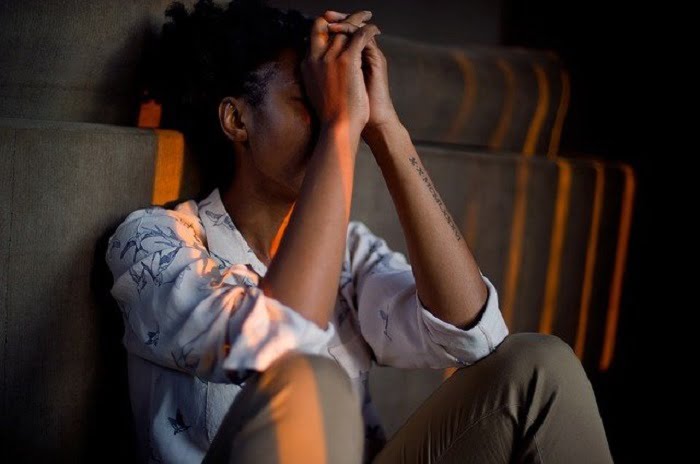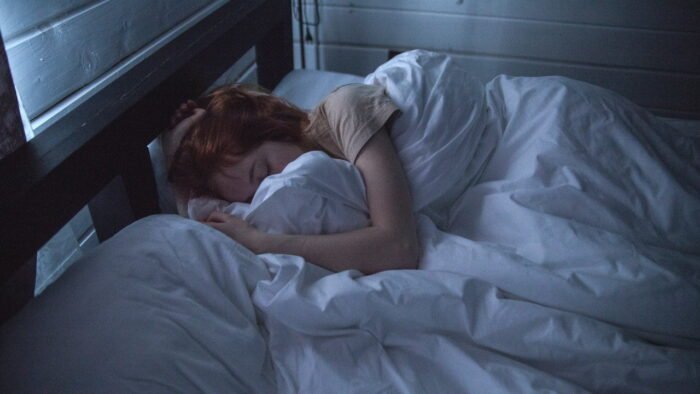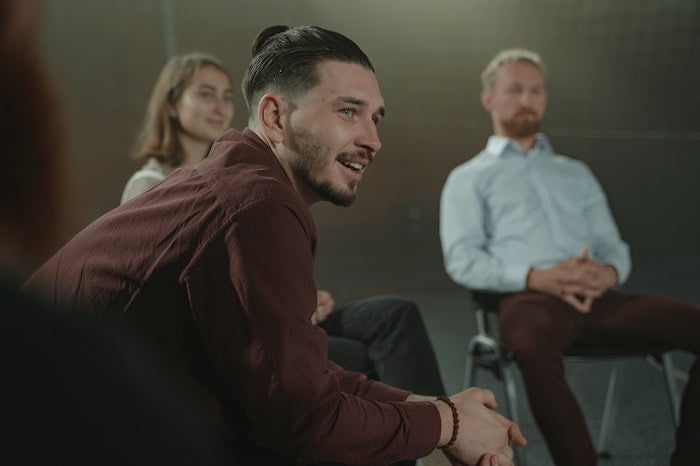Drug & Alcohol Rehab in Eastbourne
It can be really difficult to know where to turn when you make the choice to access treatment for addiction. Sometimes it can feel overwhelming when you ask someone you know and they have too many suggestions or not enough. However, when you ask someone close, it’s unlikely that they’ll be an expert on addiction or treatment.
If you’re looking for top-quality treatment in the Eastbourne area, then OK Rehab can point you in the right direction. Our team of staff have years of experience matching people to treatment centres throughout the UK.
Our referrals are comprehensive and cover all areas. This means that you don’t have to keep repeating yourself to explain your circumstances when contacting various centres.
OK Rehab can take care of the entire referral for you. All we need is to hold a free and non-obligatory pre-assessment with you to understand your needs and goals.
Once we have all the information needed, we can explain what your treatment options are in Eastbourne. You’ll have the opportunity to ask any questions you might have.
With your permission, we’ll then guide you through your referral to local services.
It was recently reported that “22% of the total adult population in Eastbourne are… higher risk drinkers”.(1)
Get alcohol and drug rehab in Eastbourne for a variety of addictions including binge drinking, alcohol addiction, benzodiazepine addiction, Buprenorphine addiction, cannabis use disorder, crack cocaine addiction, ketamine addiction, opioid use disorder, heroin addiction, cocaine dependence or cocaine addiction, any physical dependence or codependency, substance use disorder, and behavioural addictions such as gambling addiction and eating disorders.
To begin your recovery journey today, call our 24-Hour Helpline: 0800 326 5559
How can you support a loved one who has an addiction before rehab?

Perhaps your family includes a member who has an addiction. It’s likely that you’ll want to support them to enter a drug and alcohol rehab in Eastbourne. Knowing how to approach your loved one can have a big impact on whether they enter treatment.
An effective intervention such as the CRAFT approach offers you a framework to follow. You learn how to navigate conversations in a positive way.
There will be time spent focusing on what your loved one is doing well.
You’re supported by knowing what to do, while they’re supported to start believing in their recovery. The CRAFT approach supports every family member to find a place of power within the context of addiction.
The signs that you have an addiction

There are particular signs to look out for and by answering the following questions, it will become quite obvious that you have addictive alcohol or drug use.
- When you use substances are you wracked with guilt?
- Has it ever occurred to you that stopping substances would be beneficial?
- The moments that others comment on you alcohol and drug use, does it make you feel angry or annoyed?
- On waking up, does it feel like you need the substance to be able to endure or get through the day?
An affirmative answer to any of these questions suggests you most likely need help to reduce or stop using drugs or alcohol.
How much will it cost you to go to rehab in Eastbourne?

Going to a private rehab to receive a programme of therapeutic and alternative treatments obviously comes with a cost. In Eastbourne, depending on where you go, you can expect the cost to be anywhere between £1000-£10,000 a week.
The more expensive options are usually the type of place you might see a celebrity being treated for addiction. There might be an on-site swimming pool.
The budget options still offer a total approach, but you might opt to share a bedroom with another resident, for instance, and not get the swimming pool!
To begin your recovery journey today, call our 24-Hour Helpline: 0800 326 5559
Private health insurance to pay for rehab in Eastbourne

If you have health insurance, then it’s most likely to cover the cost of treatment at a drug and alcohol rehab in Eastbourne.
You’ll just need to read through the document to clarify this. Claiming through insurance does mean that you’ll have more expensive insurance premiums in the future.
Also, if your health insurance is provided through work, then you’ll likely be under oath to let your manager or the appropriate worker know that you’re claiming rehab treatment.
Can a rehab stay be funded through the NHS?

In Eastbourne, there is funding for rehab residentials that are offered to people in the community. What you need to bear in mind is that this government funding is limited (having been increasingly cut over recent years) and is highly sought-after by people wanting to go to rehab.
In order to be eligible, you’ll need to be able to document all the effort you’re putting into recovery.
It will have to be clear that you’re committed to quitting substances and that you’re in contact with local drug and alcohol services and in receipt of regular support.
At this point, you can apply to the local council for funding. It’s then up to the council to decide who receives the funding from a list of applicants.
Statutory-Funded Programmes for Addiction in Eastebourne:
Below is a list of organisations that can assist you with your addiction recovery.
1. East Sussex STAR – Change Grow Live
Address: Lift House, 6 St Leonard’s Rd, Eastbourne BN21 3UH
Telephone: 01323 410092
Website: https://www.changegrowlive.org/star-drug-alcohol-service-east-sussex/drugs
2. East Sussex Drug and Alcohol Recovery Service
Address: 13 Wellington Pl, Hastings TN34 1NY
Telephone: 0300 303 8160
Website: https://www.changegrowlive.org/star-drug-alcohol-service-east-sussex/alcohol
3. Sussex CAMHS
Address: Western Rd, Hailsham BN27 3DY
Telephone: 01323 446070
Website: http://sussexcamhs.nhs.uk/
You can find additional help from organisations such as Rethink Mental Illness, Mind UK, Young Minds, Papyrus and Samaritans. You can also find support from the NHS website.
Look for your local Alcoholics Anonymous and Narcotics Anonymous groups to find other people who share similar experiences to you. You can also look for your look Cocaine Anonymous and SMART Recovery group meetings. These follow the 12 steps which include giving yourself over to a higher power.
Other organisations that will be able to give you guidance for your addiction include NHS Foundation Trust, Turning Point, We Are With You, National Association for Children of Alcoholics, Change Grow Live, Al-Anon and Alateen.
Rehabs and organisations are advised by the American Society of Addiction Medicine and the National Institute for Health and Care Excellence so you are in safe hands with person-centered care.
You may also be offered sober living houses as part of your aftercare following rehab to help you maintain your sobriety and help with relapse prevention.
The duration of treatments/the length of your stay

A detox at rehab will be around 7-10 days. This is essential to those who have developed physical dependencies on substances.
However, every resident is advised to stay the usual amount of time that people enter rehab for: 28 days.
Staying for 28 days means that you’re able to get through the most difficult early cravings. You’ll also have time to learn and practise techniques and skills that you learn in the various therapies and activities to maintain sobriety on leaving rehab.
Stages of alcohol detox
Alcohol dependence can be confirmed fast and efficiently using the Alcohol Use Disorders Identification Test, DSM-5 or CAGE questionnaire.
Dependent drinkers will experience unpleasant withdrawal symptoms (alcohol withdrawal symptoms) or alcohol withdrawal syndrome when they stop drinking, so these symptoms need to be managed carefully.
To ensure that the risk of seizures is curtailed our medical team prescribe patients with Chlordiazepoxide, brand name Librium, as they undergo detox as this has been proven to offer more protection against the risk of seizures.
A medically-assisted detox (alcohol detox) is needed in order to try to prevent the effects of alcohol, including encephalopathy (Wernicke encephalopathy) and delirium tremens.
To begin your recovery journey today, call our 24-Hour Helpline: 0800 326 5559
Key differences between private and funded addiction services

There are quite a few differences between becoming a service user at funded local rehabilitation services in Eastbourne and staying as a resident at a private clinic.
When you go to a local centre, you’ll become an outpatient meaning you live at home but go to the clinic for particular treatments. At government-funded centres, you get some one-to-one input with substance misuse workers and will be made aware of weekly groups you can attend.
Private clinics are where people go to stay for a length of time. On entering rehab, you’ll have an assessment so that staff understand what treatments to offer you according to your needs.
Treatments will, however, always cover a wide range of approaches from alternative, such as art therapy, and psychological therapies such as dialectical behavioural therapy.
Other types of therapy available at a private rehab in Eastbourne include Acceptance and Commitment Therapy, acupuncture, art therapy, cognitive behavioural therapy, dialectical behaviour therapy, drama therapy, Eye Movement Desensitization and Reprocessing, group psychotherapy, motivational therapy, Rational Emotive Behavior Therapy, brief intervention, contingency management, coping mechanisms work therapy, equine therapy, family therapy, group therapy, individual therapy, mindfulness, motivational interviewing, music therapy, and talking therapies.
Staff are specialists in the addiction field and work together to support you from every angle; physical, psychological, emotional, and spiritual, in order to fully equip you to begin healing.
Rehab for cocaine in Eastbourne

With the world supply of cocaine making it easier for people to get hold of, the use of the substance is on the increase.
People addicted to cocaine enter rehab often experiencing the following symptoms:
- Nervousness.
- Paranoia.
- Anxiety.
- Insomnia.
- Erosion of nose cartilage.
- Suicidal thoughts and behaviours.
- Damage to health, and illnesses linked to toxin build-up
- Lung problems where crack-cocaine is used.
Treatment will focus heavily on rewiring your thought patterns. Staff will guide you to understand what triggers you to want the cocaine and how to adapt your thoughts. You’ll start to practise healthy behaviours so that you can start to override addictive habits.
Rehab for cannabis in Eastbourne

It’s really common for people to enter drug and alcohol rehab in Eastbourne where cannabis use has become a daily event.
This drug is psychoactive affecting brain chemistry and this has knock-on effects, including:
- Depression.
- Anxiety.
- Paranoia.
- Sleep disturbances.
- Altered perception.
- Delusions.
- Psychotic symptoms.
A private rehab programme will include activities that support you to feel relaxed and content. There will be discussion and guided self-analysis so you become in tune with your drives.
Support will be offered to help you identify new interests and goals that support a sober lifestyle.
To begin your recovery journey today, call our 24-Hour Helpline: 0800 326 5559
Will you receive a dual diagnosis?

There’s a chance that you might get a dual diagnosis when you have been assessed for treatment at a rehab clinic. This basically means you have both a mental health condition and an addiction.
The reason a dual diagnosis might occur is that those who have mental health issues such as depression, post traumatic stress disorder (PTSD), bipolar disorder, borderline personality disorder, obsessive compulsive disorder (OCD) or schizophrenia or anxiety can turn to drink or drugs to try and manage the symptoms.
For example, if a person feels anxious, they might smoke cannabis to relax. When a person does this regularly addiction can develop.
For those who have an addiction, it increases the chances of a mental health condition developing because of the impact on hormones and chemistry which regulate moods and emotions.
A dual diagnosis will mean staff treat you for addiction and will also tackle the mental health issue. This is useful as recovery is more likely to be sustainable when you are supported in both areas.
You will get a psychiatric assessment completed on arrival by a psychiatrist who will determine if you need any psychiatric treatment.
What’s included in a relapse prevention plan?

A relapse prevention plan is created by you and staff at rehab. This is a critical plan which you’ll come to rely on when you return home and feel a craving arise.
It’s therefore essential that when you discuss it with staff you’re honest. Being honest means you’ll better prepare for future cravings and have more success in overcoming them
Your plan will include useful techniques that you practise at rehab to help ease unhealthy urges to use. This might be a meditative practice, a yoga stance, or an activity that changes your thought patterns.
There will also be a section on who to call for additional support should you need encouragement. Your plan will include goals and lifestyle changes that you’ll begin to implement to support abstinence.
Finally, you’ll also have guidance on what to do if you relapse. This will help keep you safe and aim towards returning you to sobriety as quickly as possible.
To begin your recovery journey today, call our 24-Hour Helpline: 0800 326 5559
What other support is there for you to access?

After leaving a drug and alcohol rehab in Eastbourne, there are other services you can access to support your future health, including:
- Alcoholics Anonymous offer regular support groups and mentoring to help keep you sober and off alcohol.
- Narcotics Anonymous which follows the 12 Step structure. You get regular group support around drug abstinence and access to healthy social connections.
- Al-Anon and Nar-Anon for your family members who might require some emotional input to process your addiction journey.
- Outpatient services at drug and alcohol centres where you can meet others in similar positions at drop-in clinics and have access to facilitated group sessions.
- Home detoxes for those who might relapse on alcohol or heroin and need a doctor to ensure they safely wean off the substance, while remaining at home. Heroin will need a heroin withdrawal, and you might need advice for other effects such as hepititus.
What happens when you go to rehab?

After a referral by one of our team, you’ll be matched to a rehabilitation programme in the Eastbourne area. An admission date will be identified and this will be the first day of your road to healing.
This is a time that can feel very overwhelming for people. This is why getting the right support is so important. If at any point you have concerns leading up to this date, you can contact OK Rehab for guidance.
You will have been given a place in either outpatient or inpatient services.
If you’re placed in outpatient services you’ll remain living where you are now and will go into a centre as and when scheduled with the local workers. This type of programme is excellent for those who have a mild addiction.
For those who require inpatient services, a residential stay at a rehab clinic will take place. This provides a total package of intensive care and therapeutic support. This is especially useful for people who have severe addictions and dependencies. A stay at a clinic lasts anywhere up to 28 days.
1. The detox period
When people enter rehab for a length of time, the staff team support them through a detox period. This happens for every person. It takes place from the moment a person steps through the doors.
Detox is important as residents need to be cleared of all toxins and substances before psychological rehabilitation work can begin.
The withdrawal process can be unsettling, uncomfortable, and indeed, painful for some. This is especially the case when people have a physical dependence. Withdrawal symptoms are one of the biggest reasons people find it hard to quit heroin and alcohol.
Symptoms can include the following:
- Shaking and sweating.
- Nausea and diarrhoea.
- Hallucinations.
- Pain and cramps.
At rehab, there are doctors and clinical nurses to make this part of the stay as smooth and comfortable as possible. This often means prescribing medications such as Librium and Subutex. The detox period lasts up to ten days.
At the end of this period, residents then begin to focus on psychological and alternative therapies.
2. Therapeutic support
After the person has detoxed and the substances are cleared from the body, they’re ready to begin psychological treatments.
This is where people are led by highly skilled therapists and alternative practitioners to face the mental aspect of addiction.
Therapies such as Cognitive Behavioural and Dialectical Behavioural provide the basis for people to start looking at their thoughts and emotions. These therapies reveal how a thought becomes a feeling and can provoke a behaviour.
New coping techniques are revealed for people to begin implementing.
There are also talking therapies and art and music therapies. All of this work unpicks the underlying causes of a person’s addiction and helps the person to understand what is keeping the addiction going in the present.
It’s the goal of the staff team to provide a safe space to talk about your problems. They also want to give you tools to help you resist cravings and difficult feelings in the future. The work will come down to you using the tools you’re shown in order to face the difficult moments.
3. Group work
Your stay at rehab will include sessions with peers and those who are in a similar situation to you. This might be facilitated through 12 Step work or via other means.
Many people find this work really effective in learning from and sharing with others who totally understand what addiction is like to live with.
What happens when you leave rehab?

Towards the end of your stay, you and the team will work on building an aftercare plan for you to follow. This will include sessions at the rehab going forward.
This, along with maintaining contact with positive people you have met, will be a protective factor against relapse.
You’ll have discussed lifestyle changes you can implement too. There will also be an action plan of various things for you to try and/or investigate in the future.
Some of these might be supported by a worker at the rehab, or with workers from an outside organisation. It really depends on what your goals and aspirations are.
Reintegrating into normal life after a stay a rehab can be a bit of a culture shock. It’s imperative you stay focused on the aftercare plan. You’ll need to practise and maintain the strategies you learned to get through challenging moments.
Can you really quit drugs and alcohol?

Yes, it is possible. There’s no denying that it will be hard, but it is possible. OK Rehab has supported many people towards and in a life of sobriety.
With solid lifestyle changes and creating new life purposes, you can begin a healing recovery where your life is much more fulfilling.
You’ll make new connections and friendships and can become comfortable in your own skin again.
To begin your recovery journey today, call our 24-Hour Helpline: 0800 326 5559
How does OK Rehab match you to a rehab programme?
Our team of advisors have extensive knowledge of the best treatments available in the UK. They know what questions to ask in order to gather the appropriate information to match you to a programme in Eastbourne.
There are various factors of your personality and life that will influence how they suit you to services. It’s important for the OK Rehab member of staff who speaks with you to understand the severity of your substance problem.
This will help them decide what physical and psychological treatments are required.
Other areas are important to understand too. If you have responsibilities that mean you need to remain living at home, this is taken into account. There is also the financial aspect to consider.
For those people who have money to invest into treatment, a private rehab clinic can provide a total level of care and the highest level of input from highly trained and experienced staff.
To find out more about your options, contact our team today. We know the importance of finding you a programme that will work for you.
We also want to make this step of your recovery as easy as possible. One of our compassionate advisors will be ready to emotionally support you over the telephone and then discuss treatments.
We would be delighted to help you on your journey to recovery. Simply call us on 0800 326 5559 for a free initial assessment. A lovely helpline advisor will guide you through the process of getting help for yourself or a loved one.
All the rehabs that we advise on are include in the Care Quality Commission (CQC).
We offer addiction services across East Sussex in places such as Bexhill, Brighton, Burwash, Camber, Crowborough, Ditchling, Friston, Hastings, Heathfield, Hove, Lewes, Newhaven, Newick, Peacehaven, Rotherfield, Rottingdean, Rye, Seaford, Southwick, St. Leonards on Sea, Ticehurst, Uckfield, Wadhurst, Westham, and more.





